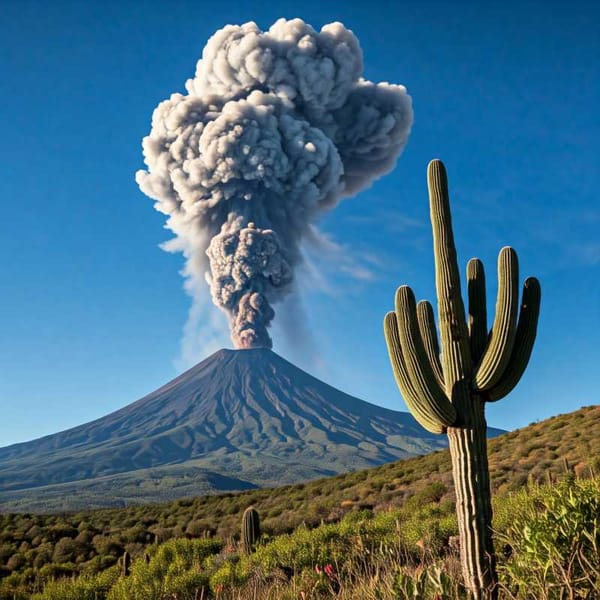How Human Activity is Disrupting Earth's Climate
Planet warming due to greenhouse gas emissions throws Earth's climate into disarray. Mexico sees rising temperatures and erratic rainfall. Scientists urge action as future holds worrying possibilities like less rain for Mexico City.

Global warming of the planet is in full development: records of greenhouse gas (GHG) emissions into the atmosphere are being broken; An unstoppable anthropogenic trend prevails of the intensive use of fossil fuels, polluting energy generation, industrial activity and a lifestyle that destroys our environment, stated specialists from the Institute of Atmospheric Sciences and Climate Change, UNAM.
And although the topic is in some speeches, it has not yet reached efficient public policy agendas that consider it; For example, between the proposals of the candidates and the candidate for the presidency of the Republic, they indicated.
“Global warming of the planet is the most urgent problem that humanity has to solve regarding its own survival, but there is a lack of intersection between politics and science,” said Gay García, researcher and head of the Department of Atmospheric Sciences.
During the State of the Global Climate and Mexico remote press conference; In March, high temperatures break records, Graciela Binimelis de Raga, researcher at the Micro and Mesoscale Interaction Group, pointed out that GHG emissions such as carbon dioxide (CO2) and methane (CH4) continue, and their concentrations in the atmosphere continue to increase. .
The specialist explained that the temperature of the planet is the result of a balance between the energy that comes from the Sun and that produced by the planet; However, the increasing concentration of GHGs emitted by human activities, since the beginning of the industrial era, has resulted in an imbalance.
And she added that the above constitutes a “radiative forcing” and is estimated from the forcing of each of the different anthropogenic components (gases, aerosol particles, clouds, and changes to the surface).
Raga's Binimelis said that radiative forcing results in an increase in the global average temperature at the world's surface. “As emissions have continued, the planet continues to warm.”
Mexico data
In the case of our country, it has been observed that the annual air temperature, until the end of 2021, has risen 1.69 °Celsius compared to the beginning of the 20th century.
The increase and rate of increase in average annual air temperature are greater than the global average. “The rate of increase in average annual temperature is heterogeneous, with higher values in the north and southeast,” detailed Binimelis de Raga.
Meanwhile, the temperature is not homogeneous throughout the year, being higher in autumn and spring, and lower in winter and summer.
Regarding changes observed in precipitation in our nation, the researcher noted that the average annual rainfall in the territory has increased at 3.1 mm/month per century since the beginning of the 20th century.
The change in precipitation is highly heterogeneous; It has decreased in northern regions and increased in the central and southern regions, she said.
Meanwhile, Benjamín Martínez López, researcher at the Climate Change and Solar Radiation Group, predicted that Mexico City will have approximately 25 percent less rain by the year 2100.
He highlighted that El Niño conditions with a tendency towards cooling are not yet observed. A transition of this phenomenon to a neutral phase is expected in the April-June period, while the possibility of another La Niña condition occurring in the June-August period increases.
In turn, Gay García maintained: what scientists knew years ago becomes more conclusive in the sense that the Earth is warming; the ocean does this significantly; In addition to the 1.4 warming recorded by NASA, the 425 parts per million concentration of CO2 and the melting of more than 12 percent per decade, starting in 1979, continues to increase.
“Temperature is basic and gives us an idea of how other phenomena that depend on it are being affected, such as precipitation, which has recently decreased significantly in our country,” he concluded.




